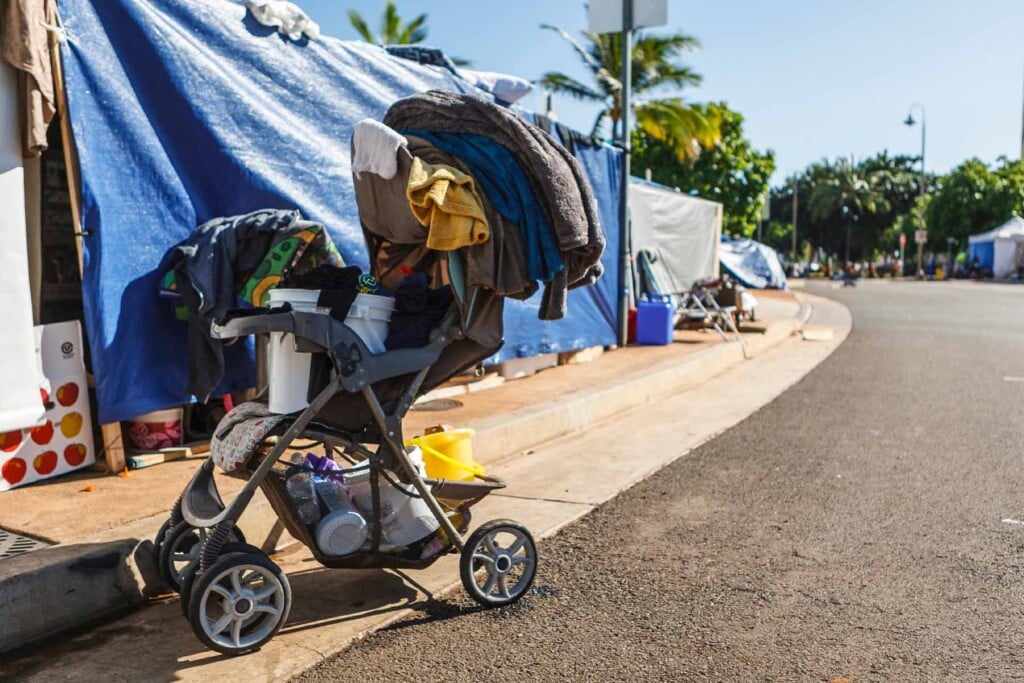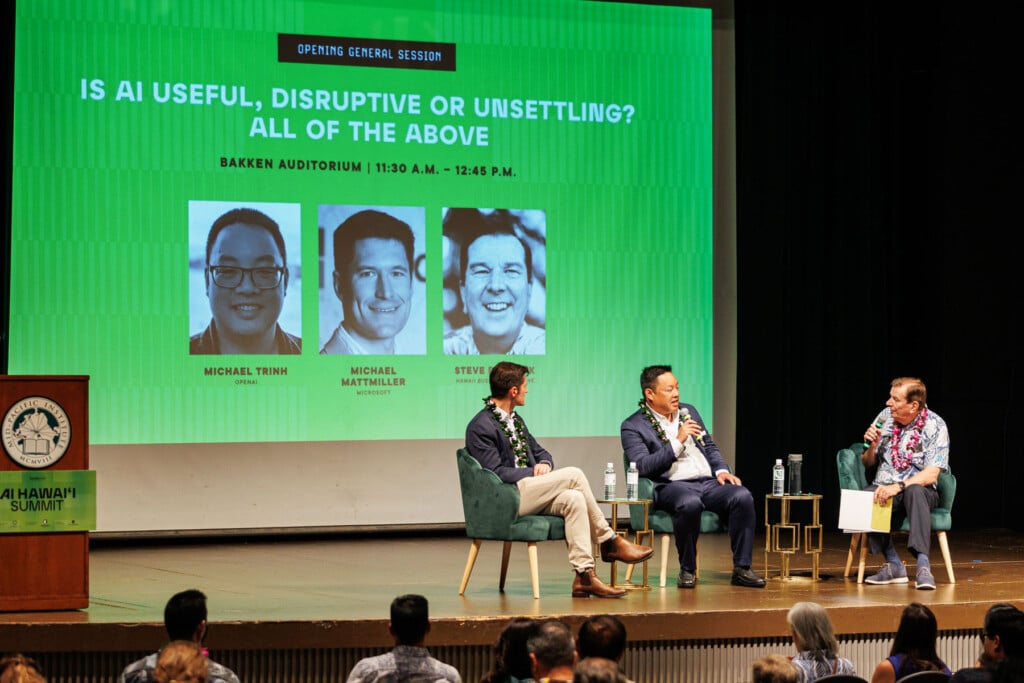We Begin Reporting by Listening to Many Voices
Staff Writer and Engagement Editor Noelle Fujii-Oride explains part of Hawaii Business Magazine’s storytelling process and the crucial topics we are covering.

I attended a gathering over Presidents Day weekend to learn about legislative proposals seeking to increase the state’s conveyance tax to significantly boost funding for land conservation, rental housing and homeless services. The gathering, hosted by the Hawai‘i Housing Affordability Coalition, was held at Ho‘omana Thrift Store at the mouth of Kaua‘i’s Wailua River.
Most of the folks attending were houseless, some of them, they said, for more than 10 years. But perhaps the most moving story was shared by Lourdes Torres, a farmer and owner of Sustainable Boost.
Torres had slowly developed relationships with nearby houseless individuals, who would charge their phones, get water and cook meals at her Wailua shop. So when her business nearly went under because of Covid, those individuals helped make her products, like flours and powders made from locally grown ingredients, so her business would survive.
Torres was amazed by their reciprocity and implored other community members to build relationships with individuals experiencing houselessness and remember they deserve empathy. After all, many households are financially vulnerable and could easily become homeless themselves.
Twenty-nine percent of Hawai‘i households have little to no savings and incomes that barely cover their basic needs, according to a 2022 report by Aloha United Way. It only takes one emergency or rent increase for them to drop into poverty. Another 15% of local households already live in poverty.
Lived Experience
This gathering was part of a larger movement to elevate the voices of locals experiencing houselessness and get them involved in changing policies that no longer work.
Nicky Winter, executive director of Wahiawā-based homeless services provider Achieve Zero, says it best: “How do we solve the single biggest crisis without talking to the people experiencing it?” Often, she says, it seems like we forget that people experiencing homelessness are humans, too.
I think that’s also important in journalism, and I’m reminded of a blog post written by journalist Margaret Meyers and DEI practitioner Janeen Williamson, “How We Can Advance Equity and Inclusion Through the Stories We Tell”. They wrote for Long Dash, an online consultancy founded by The Atlantic. They emphasized that writers become better storytellers when they honor lived experiences.
“Occasionally as writers, in our training toward objectivity, we use language that might minimize or invalidate a person’s lived experience,” they wrote. “Allowing storytellers and the people whom we interview to express how their race, ethnicity, or gender, for example, affected them will help represent a fuller picture. Representing the full picture as much as you can is important. People’s lived experiences are not up for debate.”
Honoring lived experiences can help bridge divides between readers and people who are different from them. Ignore those lived experiences, and journalists are at risk of perpetuating biases and stereotypes when our role should be to dismantle harmful narratives and provide new understandings. Like Hawaii Business Magazine Editor Steve Petranik wrote in last month’s editor’s column, journalists have a responsibility to not only get the facts right but also to be aware of the consequences their work can have on the people they cover.
Five Focus Areas
Hawaii Business Magazine’s editorial team has set five areas outside of our regular business reporting on which we plan major projects: on housing, education, regenerative tourism, sustainability, and how lower-income working families cope with the high cost of living.
We picked these topics because they encompass some of the state’s biggest social and economic challenges and opportunities. And, based on the reader survey we did last year, they’re topics that our readers want to know more about.
These are complicated topics, and we plan to speak with people most impacted by them. We do our best to seek out new and diverse voices and perspectives, but if there are some whom you feel are not on our radar, please let us know. Feel free to email us at feedback@hawaiibusiness.com or contact me directly at noellef@hawaiibusiness.com.






